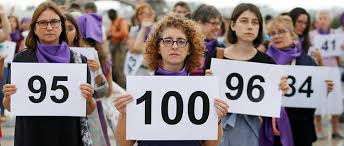Case Study: Restriction of social networks in China and North Korea
- Louise Lavatine

- 14 mai 2020
- 5 min de lecture
Dernière mise à jour : 15 mai 2020
The French motto integrates the notion of freedom. Individual, collective freedoms... But the most important will remain the freedom of expression. It is a right enshrined in the 1789 Declaration of the Rights of Man and of the Citizen. Nowadays, this freedom applies considerately on social media where each person can express himself freely. This is a chance that not everyone can enjoy for example in countries like North Korea or China.
History, context
Let’s take a few step back to understand the difficulties of freedom that met China in his history.
China has experienced the cultural revolution (1966- 1976) put in place by Mao Zedong an awful period. Intellectuals, as well as Chinese Communist Party officials are publicly humiliated, Mandarins and elites flouted, traditional Chinese cultural values and some Western values denounced. No more books only the graphic symbol of Mao’s propaganda, the Little Red Book. (learn more on Wikipédia)
During this Revolution, tens of millions of people were persecuted, with an estimated number of deaths ranging from hundreds of thousands to 20 million.
Now, since becoming the president of China in 2013, Xi Jinping has constantly controlled the social ideals and achievements of people. Like Mao’s Little Red book, the new Chinese president wrote Governance of China.
This control obviously goes through social media.
On the other side we have North Korea witch is a communist country led by dictator Kim Jong Un since 2011. All 12 major newspapers, broadcasters and magazines are run by the official Korean Central News Agency. The only existing media are put at the service of the dictatorship and are used to make propagande. There is no independent media and access to internet is extremely limited. In 2016, Only 9.7 % of the Korean population has a mobile phone.
Internet censorship in China
To regulate the Internet domestically, the Communist Party of China has censored Internet for years.
This phenomenon is called the « Great Firewall ».
Why ?
The reasons behind the Internet censorship in China include:
Social Control: Internet is a means for freedom of speech, and dissemination of campaigns could lead to protests against the government.
Sensitive Content: To control information about the government in China.
The role in internet censorship in China is to block access to selected foreign websites and to slow down cross-border internet traffic. Thereby, the state constantly monitors what is visible or not to their benefits.
Internet censorship promotes the development of local Internet groups (such as Tencent, Baidu or Alibaba), and makes it possible to control and restrict freedom of expression. Social media like Snapchat, Twitter, Facebook, Instagram… and more are prohibited.
Government authorities do not only block the content of certain sites, but they are able to monitor each person's access to the Internet. So they have all the informations of Chinese citizens.
Laws and regulations in China
Another level of control consists of a myriad of laws and regulations that are enriched upon the arrival of each new service. All sites that offer the possibility to comment on informations or write their own blog are legally responsible for the content published by internet users. The law obliges them to hire employees to monitor the content, or else to set up automatic filtering systems, failing which the discussion forums can be closed. Service providers are also communicating terms the contact details of their users at the request of the authorities. In fact, it is service providers who exercise most of the day-to-day censorship.
These rules are accompanied by regular and highly publicized operations of massive shutdowns of "pornographic" websites and underground cybercafes. Very popular BBS had to close or restrict their access for want of setting up a priori moderation of content, like Yitahutu, hosted by Peking University, in 2004 which had to limit its access to only university students . Above all, many Internet users have been arrested for publishing content liable to "incite the subversion of state power", as was the case with Huang Qi in 2000 for having put the site online. 4tianwang.com (about June 4, 1989), or Liu Xiaobo in 2009 for Charter 08.
The implementation of this censorship system is not without its immediate circumvention by Internet users, with for example systems such as Tor or Ultrasurf which compete in ingenuity to conceal the origin of packets of information or circulate them through servers abroad. Very traditional means of circumventing censorship, such as allusion, pun or drawing, also find their place on the Chinese web. For example, some BBS and instant messengers prevent keywords such as "Hu Jintao" from being displayed. However, it suffices to replace the characters with homophones or to insert punctuation marks ("Hu! Jin, Tao") to circumvent this system. The inventiveness in this area is such that it is impossible for the authorities to delete all problematic content. In 2010, when Liu Xiaobo was appointed to the Nobel Peace Prize, it was not enough to block the terms "Liu Xiaobo" or "Nobel", but also "Norway" and finally "empty chair", since the the winner could not travel to Norway to receive his award.
Local heavyweight are much more present in the daily life of Chinese than Facebook or Amazon are in the life of Americans. Users of Taobao, Alibaba’s premier e-commerce site, log in seven times a day and spend 25 minutes every day on the app. As for the billion WeChat users, they spend an average of 66 minutes a day there, compared to 50 minutes for Facebook users. A third of Wechat users spend more than four hours a day there. Free of the burden of online payments, applications can focus on content. If they are convincing, just display a QR code to access the public's wallet. Livestreaming stars, singers, rappers, comedians, collect millions of yuan from their fans, who offer them virtual gifts. Fashion bloggers can become sellers of the products they recommend, without having to worry about technical infrastructure. Many KOLs (key opinion leaders) play on various platforms, combining one or more livestreaming accounts, a Weibo account (similar to Twitter) with a few million subscribers, and a WeChat account where they can both broadcast longer content, and sell products.
What about North Korea ?
North Korea, which was last in the press freedom world ranking in 2017. From 2004 to 2008, these residents were prohibited from having a phone. Kim Jong-un exercises with regard to his people is propaganda: all the information comes from the same government propaganda office, Kim's photos and videos are very coordinated, and there is absolutely no independent media. There is no satellite TV, no foreign newspapers. The radios are tampered with only to receive national programs. Illegally modifying your radio to listen to programs from neighboring South Korea can end up in prison or internment camps. Rare are those who escaped unharmed from these camps. If extensive internet access were allowed, it would pose a massive threat to the regime. But banning it completely deprives the diet of many significant benefits. In a country hit by a wave of sanctions, the internet can facilitate international trade and communications. This innovation unfortunately only concerns foreigners, the premises remain excluded for the time being. The Internet comes down to them as an intranet, reserved for an elite of a hundred people. They have access to a kind of Tumblr "Kim Jong-Un looking at things". North Korea has recently appeared on Google Maps. For the moment, even if 3G is spreading, social networks are not ready to see the light of day in this dictatorship
Social networks are also representative of the country in which we live, it changes depending on the way that our representatives to govern them. It was our last article on social media and us. We wanted to represent this theme in all its facets. Our relationship with networks is specific to each
Written by : Eva Berlinson, Louise Bonet, Jeanne Besnier, Louise Lavatine.





Commentaires